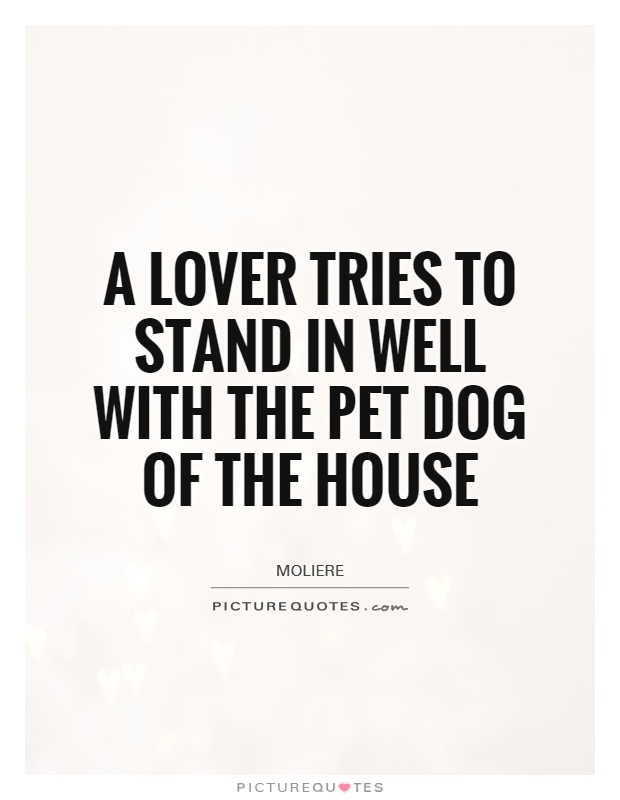A lover tries to stand in well with the pet dog of the house

A lover tries to stand in well with the pet dog of the house
In Molière's comedic plays, the theme of social status and relationships often takes center stage. One such relationship that is often explored is the dynamic between a lover and the pet dog of the house. In many of Molière's works, the pet dog is used as a symbol of loyalty, trust, and companionship, and the lover's attempts to win over the dog can be seen as a reflection of their desire to be accepted and integrated into the household.In Molière's play "The Misanthrope," the character of Alceste is a lover who is constantly at odds with the social conventions of the time. He is critical of the hypocrisy and insincerity of the society in which he lives, and his refusal to conform to these norms often puts him at odds with those around him. However, despite his disdain for the superficiality of society, Alceste finds himself in love with Célimène, a woman who embodies everything he despises.
In his attempts to win over Célimène, Alceste must also contend with her pet dog, a loyal companion who is fiercely protective of his mistress. The dog serves as a symbol of Célimène's loyalty and affection, and Alceste's attempts to stand in well with the dog are a reflection of his desire to be accepted by Célimène and her household.
Throughout the play, Alceste's interactions with the dog are both humorous and poignant. He tries to win over the dog with treats and affection, but the dog remains wary of this new intruder in his mistress's life. Alceste's struggles to win over the dog mirror his struggles to win over Célimène, and his efforts to stand in well with the pet are a reflection of his desire to be accepted and loved.












 Friendship Quotes
Friendship Quotes Love Quotes
Love Quotes Life Quotes
Life Quotes Funny Quotes
Funny Quotes Motivational Quotes
Motivational Quotes Inspirational Quotes
Inspirational Quotes